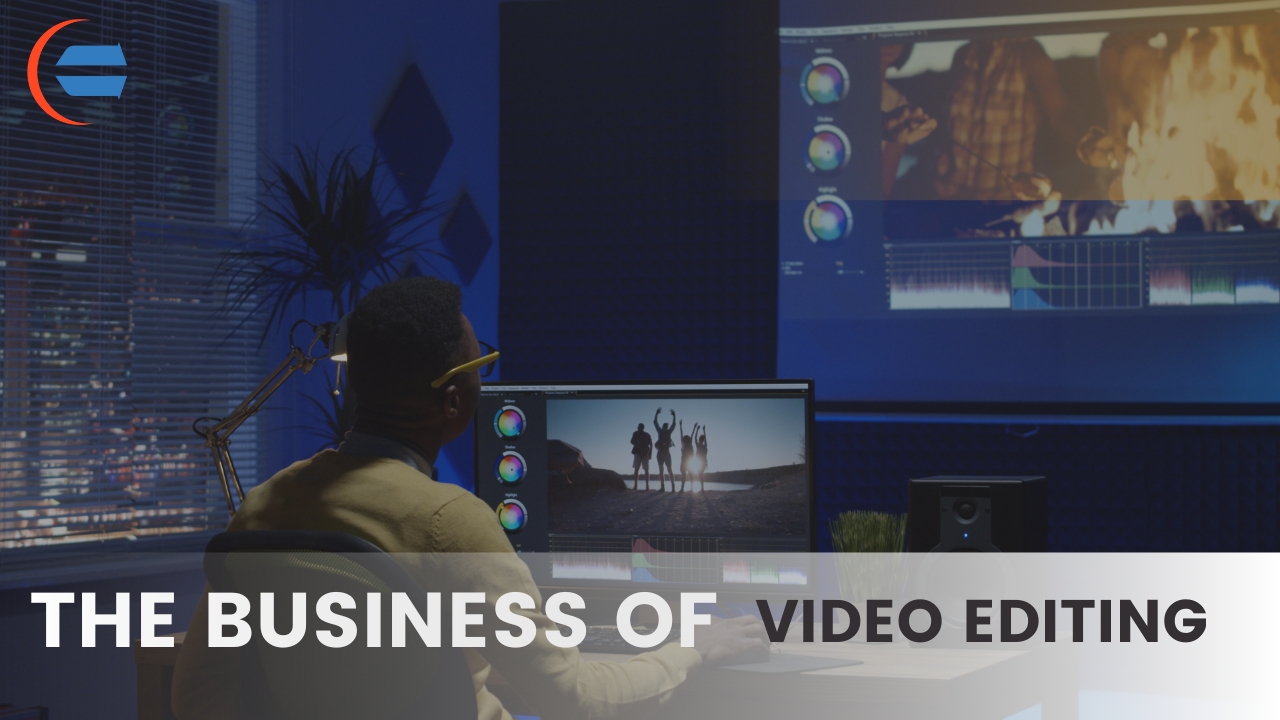The video editing business is multifaceted, involving both creative and technical aspects. The field has grown significantly due to the rise of digital media, social platforms, and the demand for video content in marketing, entertainment, education, and more. Here’s an overview of what the business of video editing entails:
1. Industry Scope
- Media & Entertainment: The largest segment, including film, TV, music videos, and online streaming content.
- Advertising & Marketing: Video ads, promotional videos, social media content, and corporate videos.
- Education & Training: E-learning content, instructional videos, and webinars.
- Gaming & Interactive Media: Trailers, gameplay videos, and content for platforms like Twitch and YouTube.
- Events & Weddings: Personal event videos, wedding films, and highlight reels.
2. Business Models
- Freelancing: Many video editors work as freelancers, offering services on platforms like Upwork, and Fiverr, or directly to clients.
- In-House: Companies hire full-time editors to manage their ongoing video production needs.
- Video Production Companies: These firms offer comprehensive services, including scripting, shooting, and editing.
- Content Creators: Some video editors create their content, monetizing through platforms like YouTube or Patreon.
- Agencies: Digital marketing and creative agencies often have dedicated video editing teams to serve their clients.
3. Key Services Offered
- Basic Editing: Cutting, trimming, and organizing footage.
- Advanced Editing: Color grading, visual effects (VFX), and sound design.
- Motion Graphics: Creating animations, titles, and special effects.
- Post-Production: Includes editing, color correction, sound mixing, and final output.
- Consultation: Advising on video strategies, content planning, and storytelling techniques.
4. Tools & Software
- Editing Software: Adobe Premiere Pro, Final Cut Pro, DaVinci Resolve, Avid Media Composer.
- VFX & Motion Graphics: Adobe After Effects, Blender, Cinema 4D.
- Audio Editing: Audacity, Adobe Audition, Pro Tools.
- Color Grading: DaVinci Resolve, Adobe SpeedGrade.

5. Challenges
- Competition: The industry is highly competitive, with many freelancers and companies vying for similar projects.
- Technology: Keeping up with the latest software, hardware, and editing trends is crucial.
- Client Management: Balancing creative vision with client expectations can be challenging, especially when revisions are frequent.
- Time Management: Video editing is time-intensive, and meeting tight deadlines requires efficient workflow management.
6. Opportunities
- Niche Markets: Specializing in a niche, such as drone footage editing, corporate training videos, or wedding films, can differentiate a business.
- Online Platforms: Offering courses or tutorials on video editing can create additional revenue streams.
- Expanding Services: Adding complementary services like video production, content strategy, or social media management.
- Remote Work: The ability to work remotely opens up global opportunities for video editors.
7. Marketing & Client Acquisition
- Portfolio Development: A strong portfolio showcasing a range of skills is essential for attracting clients.
- Social Media: Platforms like YouTube, Instagram, and LinkedIn are powerful tools for marketing video editing services.
- Networking: Building relationships with filmmakers, content creators, and marketing professionals can lead to referrals and collaborations.
- SEO & Online Presence: Having a website with optimized content and leveraging SEO can attract clients searching for video editing services online.
8. Financial Considerations
- Pricing Models: Hourly rates, flat project fees, or retainer agreements are common pricing strategies.
- Investments: Upgrading equipment, software, and training are ongoing investments in the business.
- Revenue Streams: Besides client work, revenue can come from selling stock footage, online courses, or creating content for monetized platforms.
9. Legal & Ethical Aspects
- Contracts: Clearly defined contracts outlining the scope of work, revisions, and payment terms are essential.
- Copyright: Understanding and respecting copyright laws when using music, footage, or images.
- Confidentiality: Maintaining client confidentiality, especially for sensitive projects.
10. Trends
- AI & Automation: Tools like AI-powered editing software can speed up processes and provide new creative options.
- Remote Collaboration: Cloud-based editing and remote collaboration tools are becoming more popular.
- Interactive Video: Growth in interactive and immersive video experiences, like 360-degree videos or VR content.
Finally, The business of video editing is dynamic and offers numerous opportunities for those with the right skills, creativity, and business acumen. This sector will be more effective for all new generations and video editing will improve the new positive and negative sectors.
Tags: Future of Video Editing, The Business of Video Editing, video editing agency in Bangladesh, video editing bd, video editing business, video editing software
